Common Applications
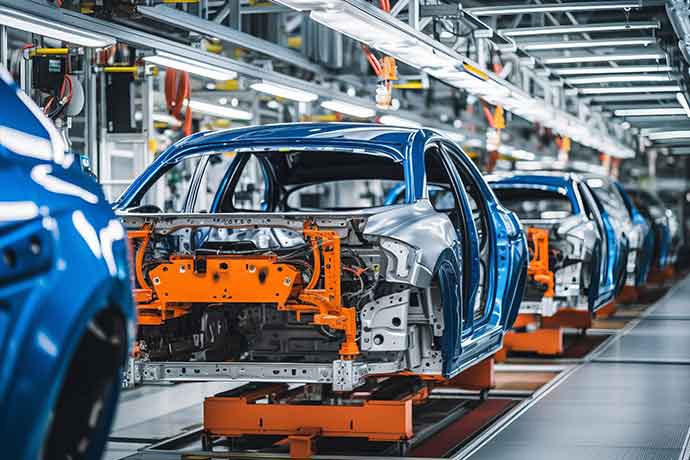
Automotive Manufacturing
In the automotive industry, lubrication is fundamental to the smooth operation and longevity of vehicles. Engines, transmissions, differentials, and various moving parts require adequate lubrication to reduce friction and heat, preventing wear and ensuring optimal performance. Engine oil lubricates internal components, allowing them to function seamlessly. Transmission and differential fluids enable smooth gear shifts and prevent overheating. Wheel bearings, steering systems, and suspension components are also lubricated to enhance maneuverability and ride comfort. Moreover, specialized lubricants are used in components like brake systems and power steering to ensure safety and efficient operation. Regular oil changes and proper lubrication maintenance are essential practices, ensuring vehicles run efficiently, quietly, and reliably on the road.

Escalators / Elevators
In escalators and elevators, lubrication is crucial for maintaining smooth and safe operations. These intricate systems consist of numerous moving parts, such as gears, pulleys, rollers, and bearings, all of which require proper lubrication to minimize friction and wear. Lubricants are applied to critical components to prevent metal-to-metal contact, ensuring seamless movement and reducing the risk of breakdowns. Regular lubrication not only prolongs the lifespan of these mechanical systems but also contributes to energy efficiency, as well-maintained parts require less power to operate. It’s essential for the safety and reliability of escalators and elevators, providing passengers with a secure and comfortable ride while minimizing wear and tear on the equipment.
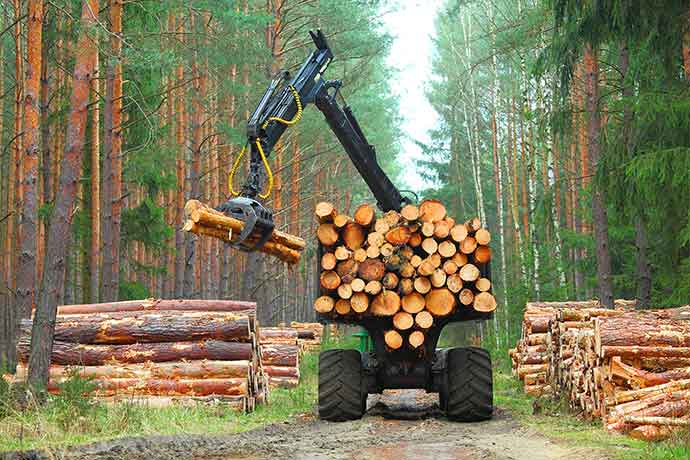
Forestry
In forestry, lubrication plays a vital role in the maintenance of various equipment used for logging and wood processing. Chainsaws, logging machinery, and sawmill equipment all rely on proper lubrication to ensure smooth operation of moving parts, such as chains, gears, and bearings. Lubricants help minimize friction and reduce wear and tear, extending the life of these tools and machines. Additionally, specialized lubricants are used in hydraulic systems, ensuring the seamless functioning of heavy machinery used in forestry operations. Regular lubrication and maintenance are essential practices in the industry, enhancing the efficiency and durability of forestry equipment while contributing to sustainable and responsible forestry practices.
Water Treatment
In water treatment, lubrication is primarily used for maintaining and ensuring the smooth operation of various mechanical components, such as pumps, valves, and conveyors. By reducing friction and wear, lubrication helps extend the lifespan of these components, reduces maintenance requirements, and ensures the efficient and reliable processing of water and wastewater, contributing to effective water treatment processes and the overall quality of treated water.
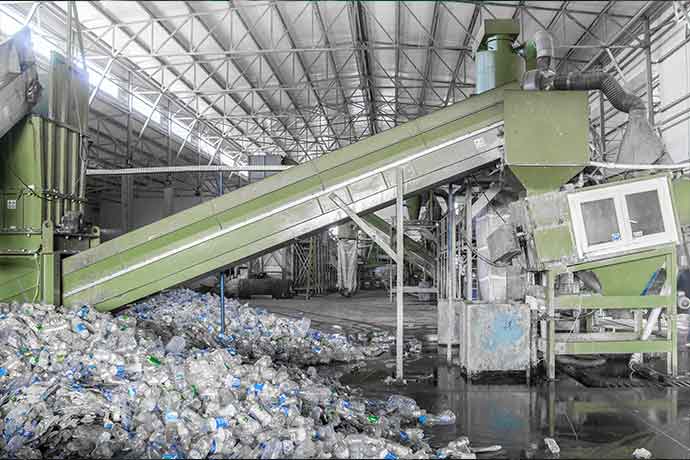
Recycling Industry
In the recycling industry, lubrication plays a critical role in ensuring the smooth operation of machinery used in sorting, shredding, and processing recyclable materials. Conveyor belts, shredders, balers, and various sorting equipment rely on proper lubrication of chains, bearings, gears, and hydraulic systems to minimize friction and reduce wear. Lubricants are selected based on the specific requirements of the machinery and the harsh operating conditions, such as exposure to dust, debris, and moisture. Regular lubrication maintenance not only prolongs the lifespan of the equipment but also enhances efficiency, ensuring seamless material handling and processing. Proper lubrication practices are essential in the recycling industry to maintain operational reliability, minimize downtime, and contribute to sustainable waste management practices.

Amusement Parks
In amusement parks, lubrication is integral to ensuring the safe and smooth operation of various rides and attractions. Roller coasters, Ferris wheels, carousels, and other thrill rides contain intricate mechanical components that require proper lubrication to minimize friction and ensure seamless movement. Lubricants are applied to bearings, gears, chains, and moving parts to prevent wear and tear, enhance performance, and extend the lifespan of the rides. Regular lubrication maintenance is essential to guarantee the safety of riders and the efficiency of the attractions, preventing issues like jerky movements or breakdowns. By employing appropriate lubrication practices, amusement parks can provide visitors with thrilling and enjoyable experiences while prioritizing their safety and well-being.
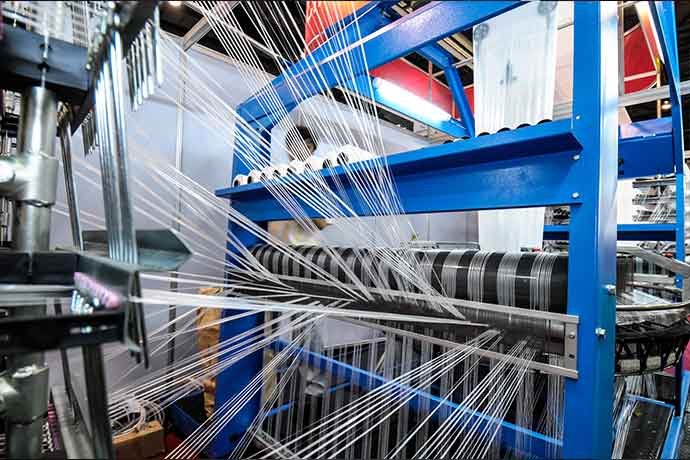
Textiles
In the textile industry, lubrication is crucial for the smooth and efficient operation of various machinery involved in the production process. Textile machines, such as spinning frames, looms, and knitting machines, consist of intricate moving parts that require precise lubrication. Lubricants are applied to bearings, gears, spindles, and other components to minimize friction and reduce heat, ensuring uninterrupted and precise movement. Proper lubrication not only prolongs the life of the machinery but also enhances productivity by preventing wear-related breakdowns and improving energy efficiency. Additionally, specialized lubricants are used in processes like fabric dyeing and finishing to optimize the quality of the end product. Regular maintenance and lubrication practices are essential in the textile industry to maintain the reliability of equipment and uphold the quality standards of textiles produced.
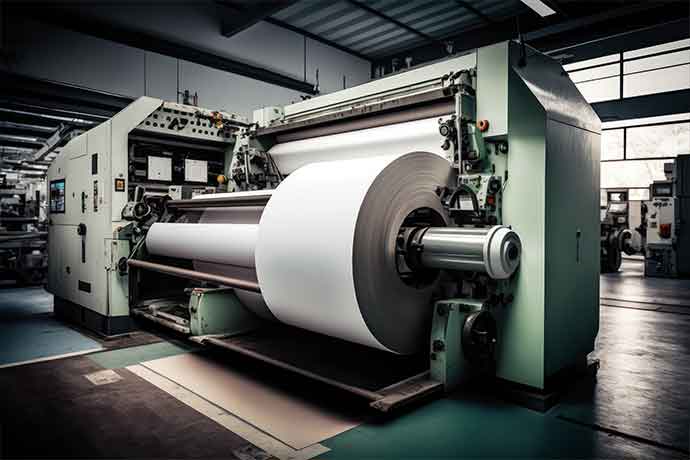
Printing Presses
In printing presses, lubrication is indispensable for ensuring precise and uninterrupted operation. These complex machines involve a multitude of moving parts, such as rollers, gears, bearings, and chains, which require constant lubrication to minimize friction and reduce wear. Lubricants are carefully applied to these components to maintain smooth movement, enhance accuracy, and prevent overheating. Proper lubrication not only extends the lifespan of the machinery but also significantly contributes to print quality by ensuring consistent ink distribution and precise paper feeding. Additionally, lubrication aids in reducing noise and vibrations, creating a more stable printing environment. Regular maintenance and lubrication schedules are essential in the printing industry to uphold the efficiency, reliability, and high-quality output of printing presses, crucial for meeting the demands of various printing projects.
